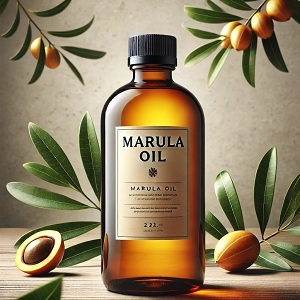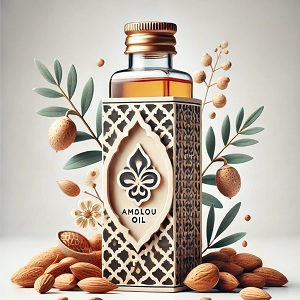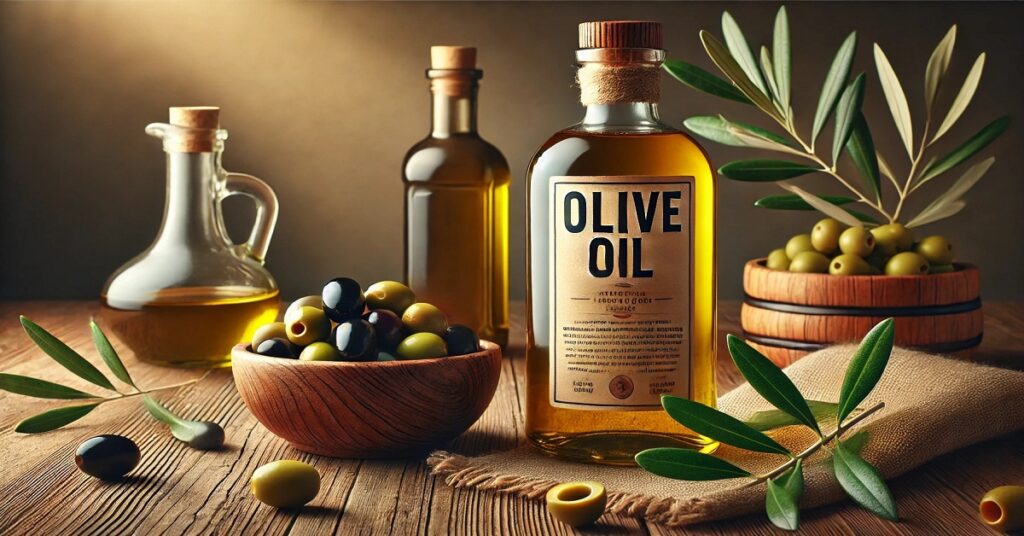
Picture a peaceful morning: Occupy an uncurtained kitchen window that looks out on olive trees as far as the eye can see. The cool morning breeze caresses THE skin and the sound of nature around. The air whispers to them with the fresh smell of dirt and olives. Moreover, the smell of sweetness is a very familiar scent. Then, remember growing up from day to night, every day in life.
Chances are, they have it on the dining table every day; maybe swirl some over bread or slather just this onto jumbled salad leaves. However, olive oil has never been the only food ingredient. It is much more than that. It is a metaphor for the past blending into the present; it speaks of time-honored tradition, which has become intricate to the roots.
We also used olive oil as a skin and scalp care product in our beauty regimen. Growing up, Mom would moisturize our skin with olive oil and loved how comforting it was when she applied the glow to the face or hair.
I realized how deeply olive oil had molded my life. It was more than just an item we put in our kitchen or used for beauty care. It was the obvious answer to many of our common day-to-day issues, whether health- or beauty-oriented! Little cuts or skin irritations that would just be rubbed with olive oil when growing up were excellent. The oil was a gem; it cured wounds while moisturizing the skin at that moment.
We will look through this article for ways to use Olive oil’s benefits for beauty and health. Golden fluid can also affect regular life. This olive oil journey is not just about finding a pure product but also about defining the path of self-care and tasting the all-natural perks nature has in store for us.
| Table of Contents Health Benefits of Olive Oil 2.1 Enhancing Heart Health 2.2 Improving Digestion 2.3 Liver and Kidney Support 2.4 Enhanced Immune System Olive Oil For Beauty, Skin Care 3.1 Hydrating and feeding the skin 3.2 Treating Hair Problems Olive Oil Natural Beauty Recipes 4.1 Hydrate the Skin: Natural Solution Natural Recipe for Damaged Hair4.2 Selection and Storage of Olive Oil 5.1 Choosing Genuine Olive Oil 5.2 Best Storage Practices Olive Oil — Basin White | Frequently Asked Questions |
Olive Oil Health Advantages
Enhancing Heart Health
Extra virgin olive oil should be right up there, concerned about the heart and looking for things to support good overall health. Diet affects the heart’s health, but could a spoonful of olive oil have some secret power, too? The heart-healthy fat in olive oil. Replacing butter or margarine with a tablespoon of extra virgin olive oil may have more than just melt-in-your-mouth benefits.
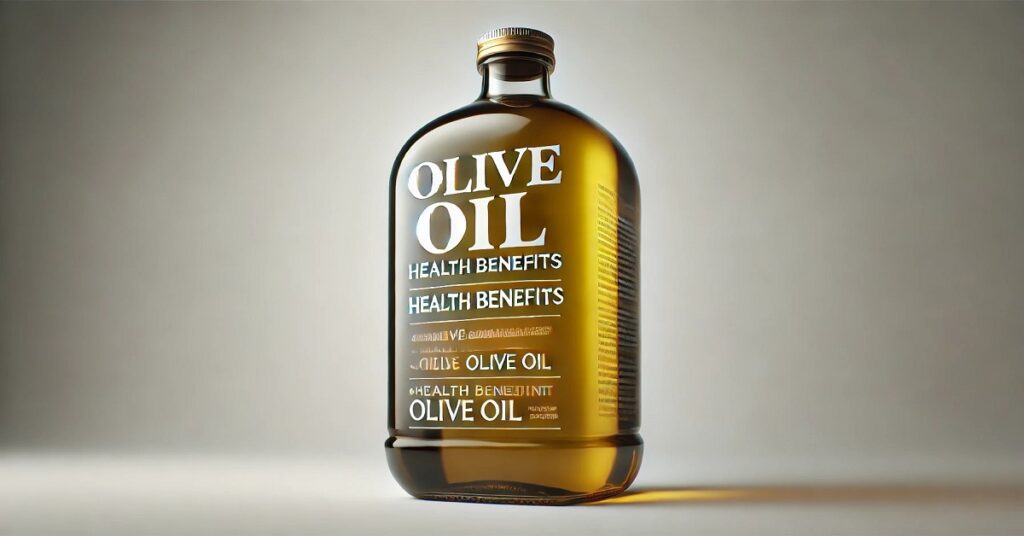
This fat shields your heart, decreasing bad cholesterols (LDL), which block arteries, and increasing good cholesterols (HDL), analyzing fatty deposits off the artery walls.
For example, consider putting a teaspoon or so on the salad daily. Olive Oil: Uses, Benefits, and Side Effects When to seconds, it enhances the meal and gives a piece of goodness back.
It seems like an easy way to save money that will have lasting effects on health. These monounsaturated fats also lower inflammation in the blood vessels and help prevent hardening of arteries (atherosclerosis). They also promote better cardiovascular health overall.
Research has recently confirmed olive oil’s beneficial role in heart health. Olive oil may be among the healthiest foods on earth, lowering the risk of developing heart disease by 30%! It is the most natural and beneficial ingredient for protecting the heart, so olive oil is necessary.
Olive oil is also responsible for regulating blood pressure.
Ginger’s antioxidants (phenolic compounds) help dilate blood vessels and lower blood pressure. Olive oil can be added to meals in several ways, from drizzling it over salads to using it instead of other oils for cooking.
Improving Digestion
That uncomfortable feeling after a big meal? Heartburn or even debilitating constipation. If so, olive oil could be the answer they sought when trying to help digestion. The advantages for the digestive tract extend along with heart-based olive oil.
Moreover, olive oil has natural compounds that stimulate bile production from the liver, so people have less difficulty digesting fat in their digestive system and absorbing all essential nutrients. Olive oil also has anti-inflammatory properties, making it a good option for dealing with gut issues like IBS or inflammatory bowel disease.
For example, they can take a teaspoon of olive oil on an empty stomach every morning to improve digestion. While this may appear small, it will enormously impact the overall digestive well-being. Olive oil is also an excellent natural lubricant of the intestines, softening them and hindering constipation. It is like daily digestive system maintenance, ensuring it feels good for the rest of the day.
Scientific studies have confirmed olive oil’s benefits, including its benefits for digestion. Studies reveal that daily olive oil reduces the chances of digestive issues like constipation and bloating. Studies even suggest that due to the antioxidant and anti-inflammatory effects of olive oil, it might protect against colon cancer.
Liver and Kidney Support
Finally, olive oil is beneficial for the liver and kidneys. It is a great way to cleanse the liver, which happens through olive oil, as it is the detoxifying organ of our body. Its antioxidants will protect the liver cells from the damage caused by free radicals, and because it helps metabolize fat, it also contributes to preventing fatty liver disease.
Olive oil only helps the kidneys—in fact, it supports their natural filtration of toxins. Regularly consuming olive oil may help reduce kidney stone formation and positively affect hormonal balance, which improves overall kidney health.
Naturally Building the Immune System
Olive oil is helpful for the heart and digestion and is a firm friend of the immune system. Thanks to its antioxidants and healthy fats, olive oil naturally boosts immunity. With powerhouse antioxidants, which help resist free radicals that lead to disease.
Olive oil can protect the body by fighting inflammation, one of the critical mediators behind most chronic diseases, such as heart disease, diabetes, and cancer. Therefore, olive oil is a must-have ally for everyday dinners to promote strength in the immune system or river health and maintain the general balance of life.
Olive Oil for Beauty and Skin Benefits
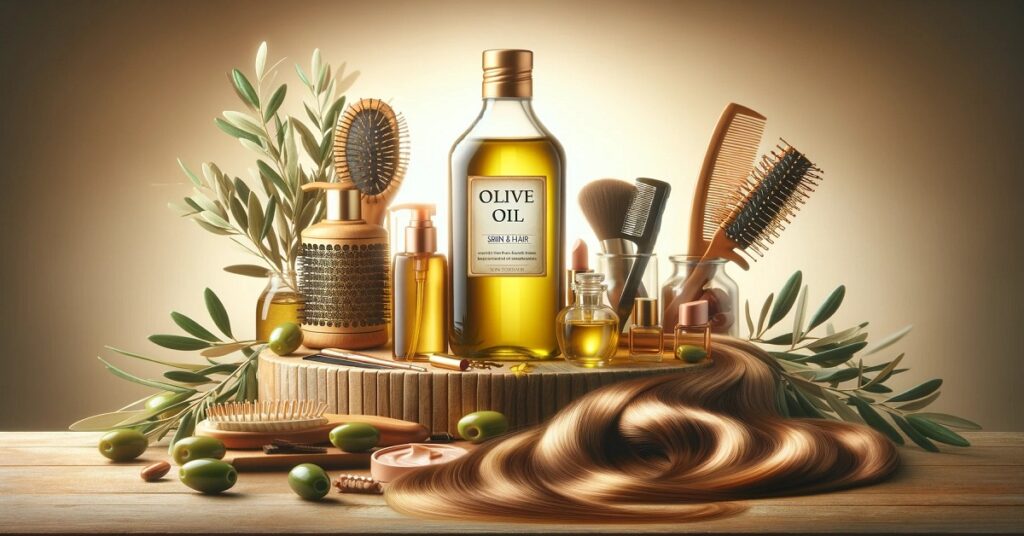
Skin hydrating and Nourishing
The first thing a person notices when they meet is their skin, so doing little for beauty to make the skin soft and delightful is not something wrong with this. So, olive oil is the best bet if they are looking for a non-toxic option to moisturize and hydrate the skin. Not only is it available, but it is also very nutritious for the skin and protects the precious skin cells beautifully.
Olive oil’s Vitamin E is a potent antioxidant that safeguards the skin from free radical damage and environmental stressors like prolonged sun exposure and pollution. This vitamin protects the skin and promotes collagen production, which helps turn down dead cells to keep the face fresh. Olive oil with vital fatty acids profoundly moisturizes the skin, making it soft and smooth.
An evening of stress and work, rest for the skin. Heat two to three drops of olive oil in the palm and apply it with a gentle massage on the face and neck. In a few minutes, the skin will start to recharge and re-tighten.
Thanks to its deep hydration, they will immediately notice their skin appearing younger and feeling more radiant and refreshed.
Vitamin E comes into play here to fight wrinkles caused by sun damage and other anti-aging environmental factors.
Olive oil does not just feed the top layer of skin; it seeps deep beneath to elastin and effectively moisturizes. If the skin becomes dry, olive oil is the perfect daily treatment. This Crème is a lightweight formula that absorbs quickly into the skin and does not leave it feeling greasy, sticky, or heavy on the face.
Olive oil is a valuable addition to the daily skincare routine. Pour a few drops of olive oil into the moisturizer for better results.
Treating Hair Problems
After all, who does not want soft and shiny hair? It might sound almost impossible because of all the environmental conditions, heat, and chemicals our daily hair must endure. However, the remedy could be closer to the kitchen: olive oil.
Olive oil could be the natural answer for those who suffer from dry, brittle hair or a head. These fatty acids and antioxidants pass to the scalp, giving healthy hair from within (literally roots) of hairs, so it is your best choice for healthy tresses.
Olive oil is an ancient remedy for restoring moisture to hair and repairing heat damage. Rubbing olive oil onto the scalp increases blood flow to the hair follicles, which means more nourishment goes where they need help most (and fewer split ends).
How to Apply Olive Oil for Hair Care:
Heat the olive oil in a pan until it becomes lukewarm. (Do not make it too hot; otherwise, your scalp will burn.)
Rub oil on the head and massage for 10-15 minutes.
Hair with a shower cap and let the oil sit for 30 minutes.
Moreover, one’s favorite shampoo to wash it out.
This simple ritual will give you soft, shiny hair. The locks will also look firmer and bouncier. Doing this treatment once a week will result in noticeable health benefits to the hair.
Olive oil is good for fighting dehydration and guarding hair from atmospheric effects and pollution. It strengthens hair follicles and feeds them the necessary nutrients, preventing further shedding. It can also help reduce dandruff and an itchy scalp. Proven Benefits of Olive Oil
Olive Oil Beauty Recipes
It might sound like much, but including olive oil in the everyday beauty care routine, which helps to protect and enhance the natural health of the skin or hair, requires little effort. Some of these recipes should be part of the regular skincare routine.
DIY Natural Skin Hydration Recipe
This natural recipe uses simple yet effective ingredients to moisturize and brighten the skin over time. Olive oil is a natural moisturizer, honey is beneficial for its antibacterial properties, and yogurt helps lighten the skin and reduce dryness.

Ingredients:
Two tablespoons of olive oil. Natural honey – 1 tbs One tablespoon of yogurt. How to prepare: Add olive oil (optional), honey, and yogurt in a small bowl. Put it on the clean face and wait about 15-20 min. Wash off the face with lukewarm water and gently pat it dry. It hydrates the skin, brightens it, and helps diminish dark spots. After a few weeks, you see the skin look. Home Remedy for Damaged Hair One overeat meat, here is a moisturizing solution for hair that combines the benefits of olive oil, avocado, and eggs. Ingredients: Two tablespoons of olive oil. Half a ripe avocado. One egg. How to prepare: Combine the avocado, oil, and egg. Mix the teeth whitener mixture well until it has a smooth paste. Put the mixture from roots to tips and leave it in the hair for 30 minutes. Shampoo: To wash the head for shiny hair, use the shampoo and do this once a week. The remedy works to recover damaged and Dry Hair. It restores the hair’s life and provides intense hydration, making it less susceptible to damage while adding softness and shine. |
Choosing and Storing Olive Oil
How to Buy & Shop for Almond Oil II Tips For Choosing Genuine Olive Oil
The key to reaping olive oil’s health and beauty benefits lies in its quality [6]. But how do the olive oil purchase is authentic,
What qualities should they look for when choosing the right oil?
The number of different oils available can sometimes be confusing. This article offers some tips on choosing an oil.
The first tip is to use high-grade extra virgin olive oil. This oil comes from natural sources and does not contain chemicals or high heat, making it the purest and richest in nutrients. It does contain antioxidants and vitamins, such as vitamin C, which contribute to maintaining the body’s health.
The queen of nutritionisM
However, how does one know if their selected oil is an authentic extra virgin?
Avoid Bottled in Clear: The best way to protect olive oil from light damage that leads to rancidity or off flavors and cut oily odors —temperate climates are better for storage than hot ones, at least until open the bottle—are dark-colored bottles.
Light rapidly affects oil quality and accelerates the oxidation processes that affect oils’ nutritional benefits. Dark bottles prevent the oil from being exposed to sunlight and extend its life.
The second is that if the oil is transparent in a visible bottle, its preservation may not be reliable, and there is a risk of losing some valuable properties.
Correct Label and Description: Inspect the label present on the bottle. Natural olive oil usually clearly states where and how the olives are. Always opt for “extra virgin” olive oil and, better yet, one certified by an authority you can trust. For example, information on when it was harvested or produced is needed to ensure fresh oil.
Smell: A lack of scent may indicate that the oil has been chemically bleached (not always wrong, but on our checklist to avoid). Taste and smell: Taste the oil before buying. Olive oil is imbued with a flavor all its own, spicy and hearty but also slightly bitter or peppery, signaling the presence of antioxidants.
Decide on equally excellent quality by such oils; sure, an excellent CBD olive oil assessment is published at If the Essential. It tastes flaccid, bitter, or missing some spicy reverberation contemporary, but it is of an excessively budget quality, much like the scent. The oil should smell fresh and green, like herbs or green fruits.
Origin: While there is a much more extensive list of countries that produce olive oil, Italy, Spain, and Greece have become known for their high-quality olive oils. The country of origin matters, and utilizing premium-producing regions in this area is lovely. In these countries, oil quality is through strict production standards.
Cost: They would expect the price to be a telltale sign of the CBD oil’s quality or lack thereof. It tends to be pricey if it is good; high-quality EVOO is not cheap. They pay very little for olive oil; it probably is not all that pure OR has been stretched and blended with other oils. Indeed, olive oil is worth the investment.
Storage method
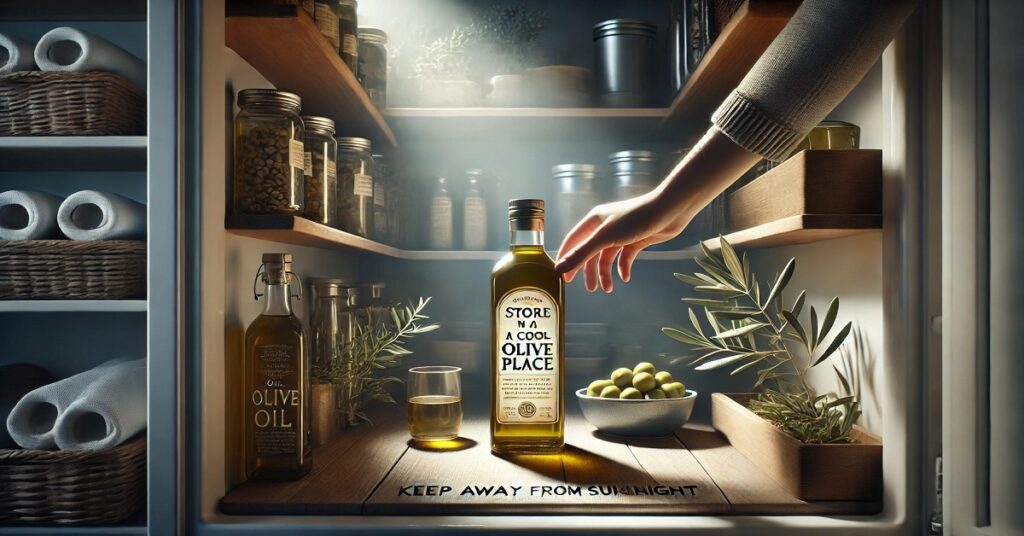
Best Storage Practices
After picking out pure olive oil, the next step is to store it properly so that its helpful properties last as long as possible. Olive oil, being delicate, should be stored so that it does not lose its flavor and nutritional properties. Some suggestions for the ideal storage of olive oil are as follows:
Cool, Dry Storage: Olive oil should be in a cool and dry place where no sunlight can directly affect its haze. Also, avoid heat and light at all costs, as these two are the mortal enemies of olive oil because they can degrade quickly, losing their flavor and nutrients. We can take it away between 15-20°C, the best temperature to store olive oil. Keep it in a dark pantry or cupboard.
I am donning that chef cap to cook up something delicious this weekend right where the olive oil is in the kitchen; they cannot stock olive oil near the stove or oven! Furniture oil can oxidize more efficiently and lose the benefit of its properties even if it is high heat.Olive oil, extra virgin
Seal the Bottle: Seal the olive oil bottle well after each use. Its continuous exposure to the air causes it to oxidize, degrading its quality over time. If the bottle cap is not tight enough, they may want to pour the oil into a lidded container to preserve it for longer.
Do not refrigerate: They may believe that storing olive oil in the refrigerator is beneficial, but this is not the case since refrigeration can cause the oil to solidify and alter its texture. Moreover, cold temperature conditions can impact the oil’s flavor as well.
Olive oil should be kept at room temperature and insulated from extreme heat. Do not keep it for too long: Since olive oil is a natural substance, it has a limited lifespan. While olive oil does not “spoil” in the ordinary term, its quality diminishes with time. Olive oil should be within 12 to 18 months of its manufacture date. The significance of adequate storage practices guarantees quality and flavor.
One advantage of adequately storing olive oil is flavor preservation; another is ensuring the client gets as many health benefits as possible. When olive oil is under adverse conditions, its antioxidant levels and essential fatty acids deteriorate, diminishing its advantages to the person consuming it.
Consequently, it is critical to ensure that it is stored in the most effective method possible to guarantee that the oil remains fresh and flavored. To summarize, consuming genuine olive oil while preserving it can help the body maintain excellent health. Whether cooking, skincare, or maintaining the body’s arteries health, storing the oil ensures the user receives all the benefits of this “golden liquid.”How Olive Oil Enhances the Health and Beauty — Living Well Coach
Frequently Asked Questions
Is olive oil suitable for all skin types?
Olive oil works for all skin types, even the most sensitive ones. It doubles as a natural moisturizer and provides antioxidants to shield the skin. Nonetheless, it is helpful for folks with dry/average skin and should be used moderately on oily types so they will not clog pores.
What is Olive Oil good for the heart?
They make olive oil rich in Monounsaturated fats, which reduce low-density lipoprotein (LDL) cholesterol and increase high-density lipoprotein (HDL) cholesterol. Reduces the risk of coronary heart disease and obstructed blood vessels. This antioxidant also protects blood vessels.
Does Olive Oil Help With Digestion?
Olive oil helps promote bile production, aids digestion, and increases the absorption of nutrients. It is also anti-inflammatory, so it can be helpful for digestive disorders like IBS.
Does Olive Oil Work For Hair In This Way?
Answer: If olive oil is, can’t it also benefit the hair? It aids in hydration for dry and brittle hair, fortifies the roots of the mane to limit or eliminate hair loss, and improves hair shine and makes it softer.
The Proper Way To Apply Olive Oil On Skin?
Olive oil is a natural moisturizer. Massage it Gently Into Clean Skin After Bathing. Some even use it as an ingredient in DIY face masks, for example, mixing it with honey or yogurt to get that extra hydration and nourishment.
Is olive oil suitable for cooking?
Olive oil is excellent for cooking (when used for medium-heat cooking with light frying). Its texture is better for deep frying, though it does have a low smoke point compared to other oils.
How to store olive oil?
Olive oil should be stored in a cool, dark place, away from direct sunlight. The bottle prevents oxidation. It should also be somewhere cool but not near a stove and should not be refrigerated.
Shelf life
How long does olive oil last?
Olive oil can last 12–18 months from the manufacturing date. However, the quality may diminish after some time. Therefore, it is advisable to reap its full benefits before this term ends.
Is Olive Oil Good For Weight Loss?
Olive oil is a source of healthy fats that help people feel full longer and allow their metabolism to function at its optimal set point, so it has benefits. However, if they watch their figures, they should enjoy it among the many other plant-based options.
Is olive oil the alternative to buying beauty products?
Olive oil for beauty — is natural or nothing! Natural makeup remover Skin moisturizer Hair strengthener: With natural vitamins and antioxidants, it is not harmful to use daily.
Summary
Olive oil is a versatile, nutrient-rich oil celebrated for its numerous health and beauty benefits. It contains antioxidants, healthy monounsaturated fats, and essential vitamins, which support heart health, reduce inflammation, and nourish the skin. Known for its protective properties, olive oil helps prevent cell damage and provides deep hydration, making it ideal for skincare and haircare. Whether used in cooking or beauty routines, olive oil offers a natural, beneficial choice that enhances both well-being and appearance.

